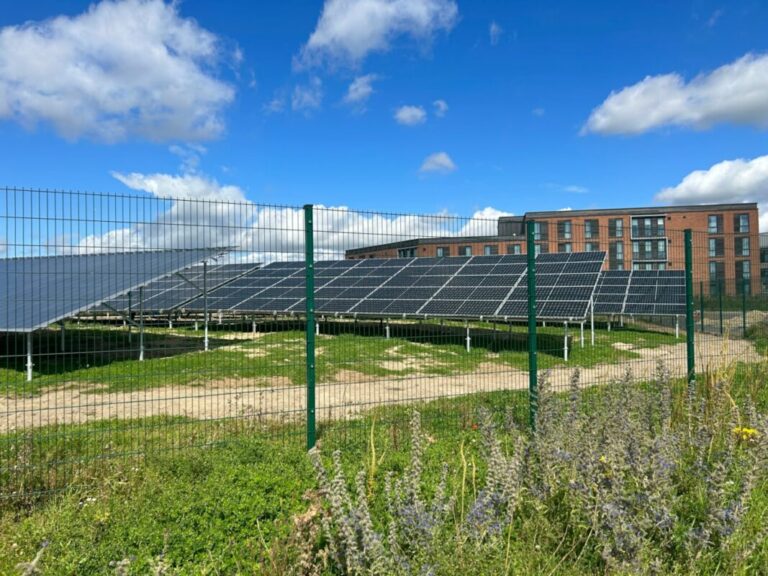Siemens has completed a solar farm that is part of a £1.5 million project to improve the University of York’s research capabilities.
The project, which will generate 200 kWp for the University of York’s new Institute for Safe Autonomy, aims to increase the university’s research capabilities in developing and testing robots and other autonomous systems for inspecting and maintaining solar panels. The purpose-built Institute for Safe Autonomy provides collaborative work and testing spaces for more than 100 researchers from various disciplines.
The solar farm is funded by the UK Research Partnership Investment Fund (UKRPIF) and will create a ‘living lab’ for the institute, providing landowners and solar farm operators with insight into the best way to integrate robotic technology into the field. It is one of nine projects to receive almost £19 million in funding from UKRPIF.
The solar energy generated will also provide 80% of the building’s expected daily use of 600 kWh, meaning the institute itself will be energy neutral by 2025.
The Siemens team supported the development by providing consultancy services and helping to design, commission and optimize the solar panels for the robotic technology used in the institute’s research.
It has also established a data collection system for the panels that will support the institute’s research projects. LYNX Sustainable Solutions installed the solar panels.
The farm, which covers over 1,400 square meters, consists of various panel configurations, including static ground installations and a sun tracking array. Some solar panels are also mounted on the side of the Institute’s building and on the roof as building-integrated solar photovoltaics (BIPV) to achieve a wide range of installation positions.
Professor Miles Elsden, Director of the Institute for Safe Autonomy, said: “Robotics, autonomous systems and AI have the potential to transform the way we live, travel and work in the future. Its integration with renewable energy production will ultimately play a key role in the journey to net zero.
“This innovative research project marks an important milestone for the institute since we opened earlier this year and reaffirms our commitment as a university to sourcing sustainable energy.”
Solar Power Portal’s publisher, Solar Media, will host the British Solar Summit on June 4 and 5, 2024 in London. The event will explore the new UK utility and rooftop solar landscape, look at the opportunities within a GW+ annual market and much more.


